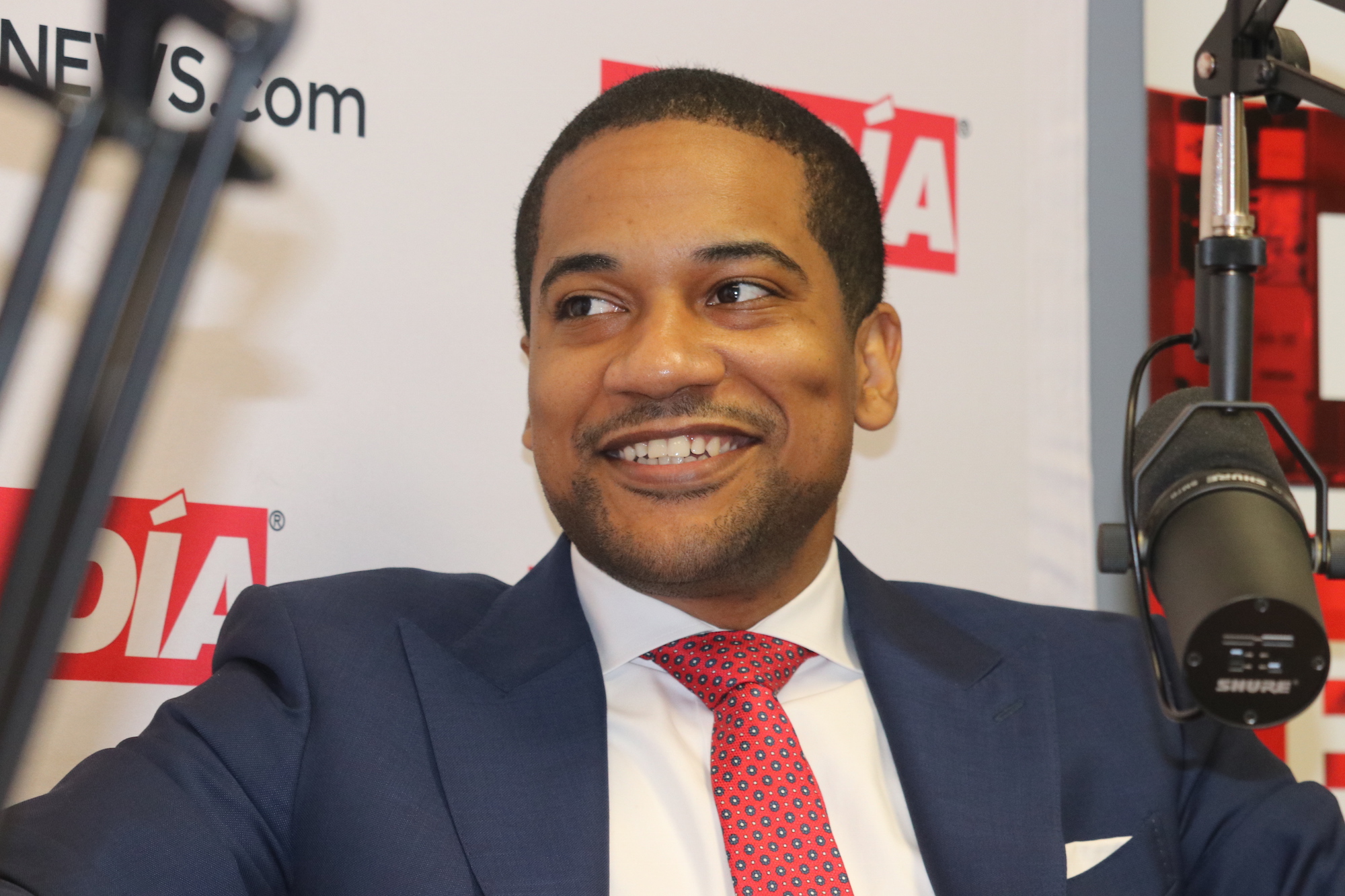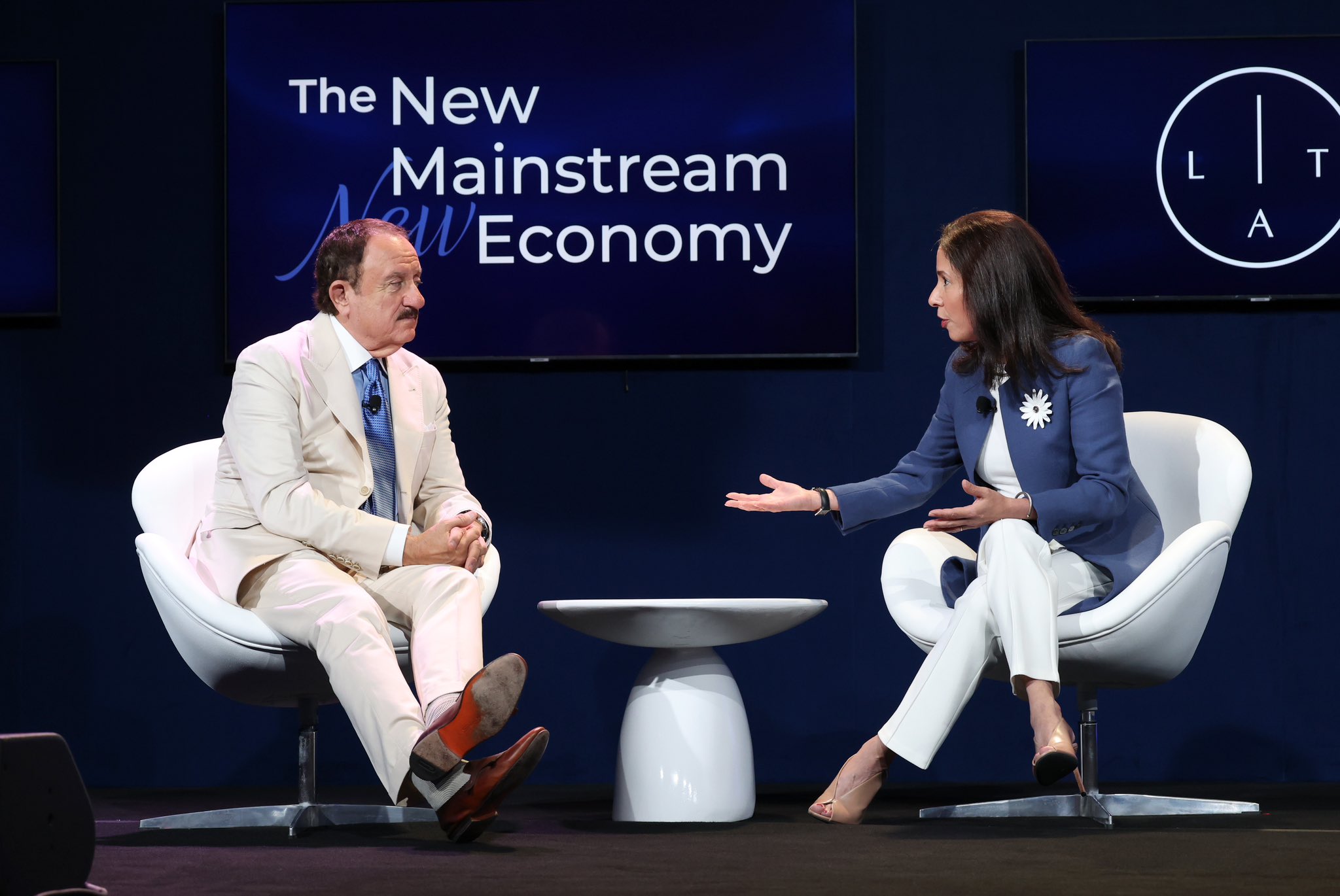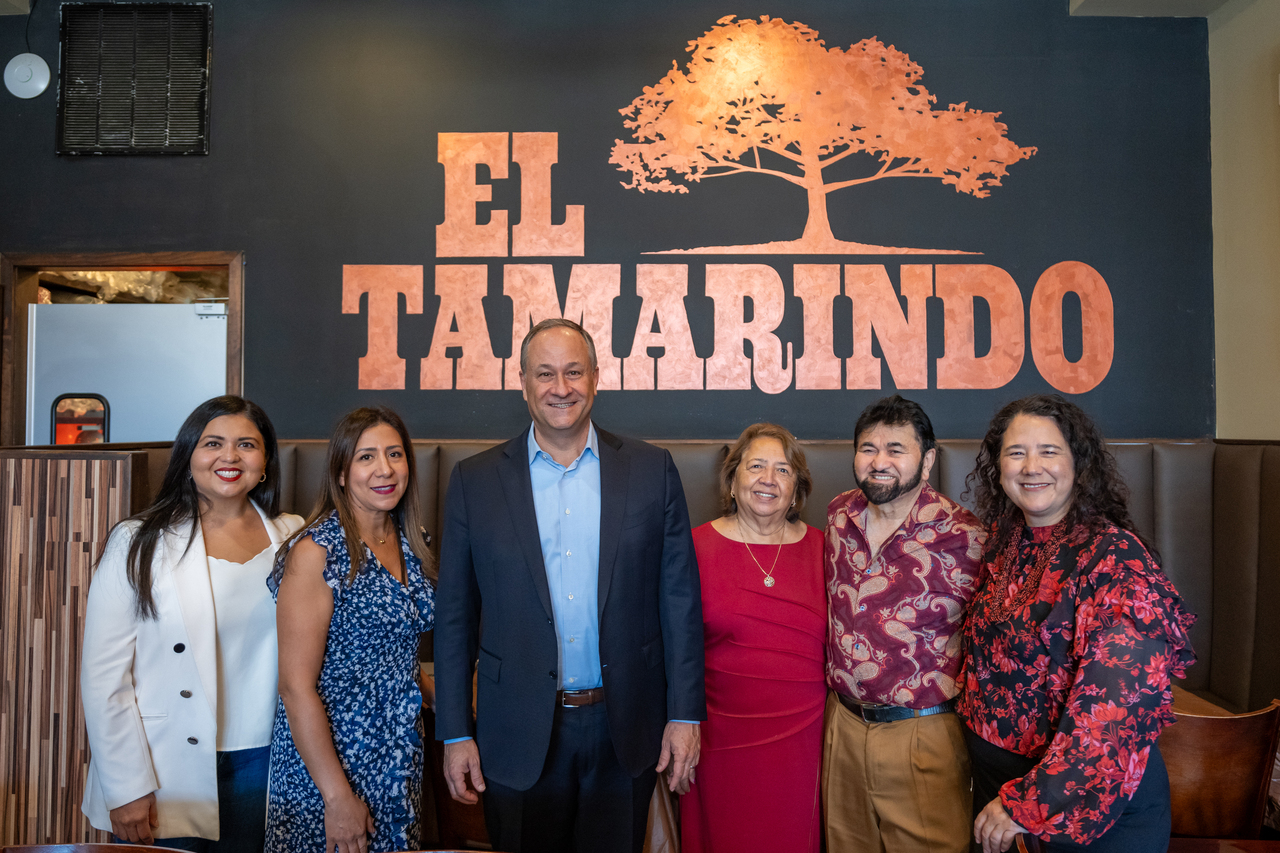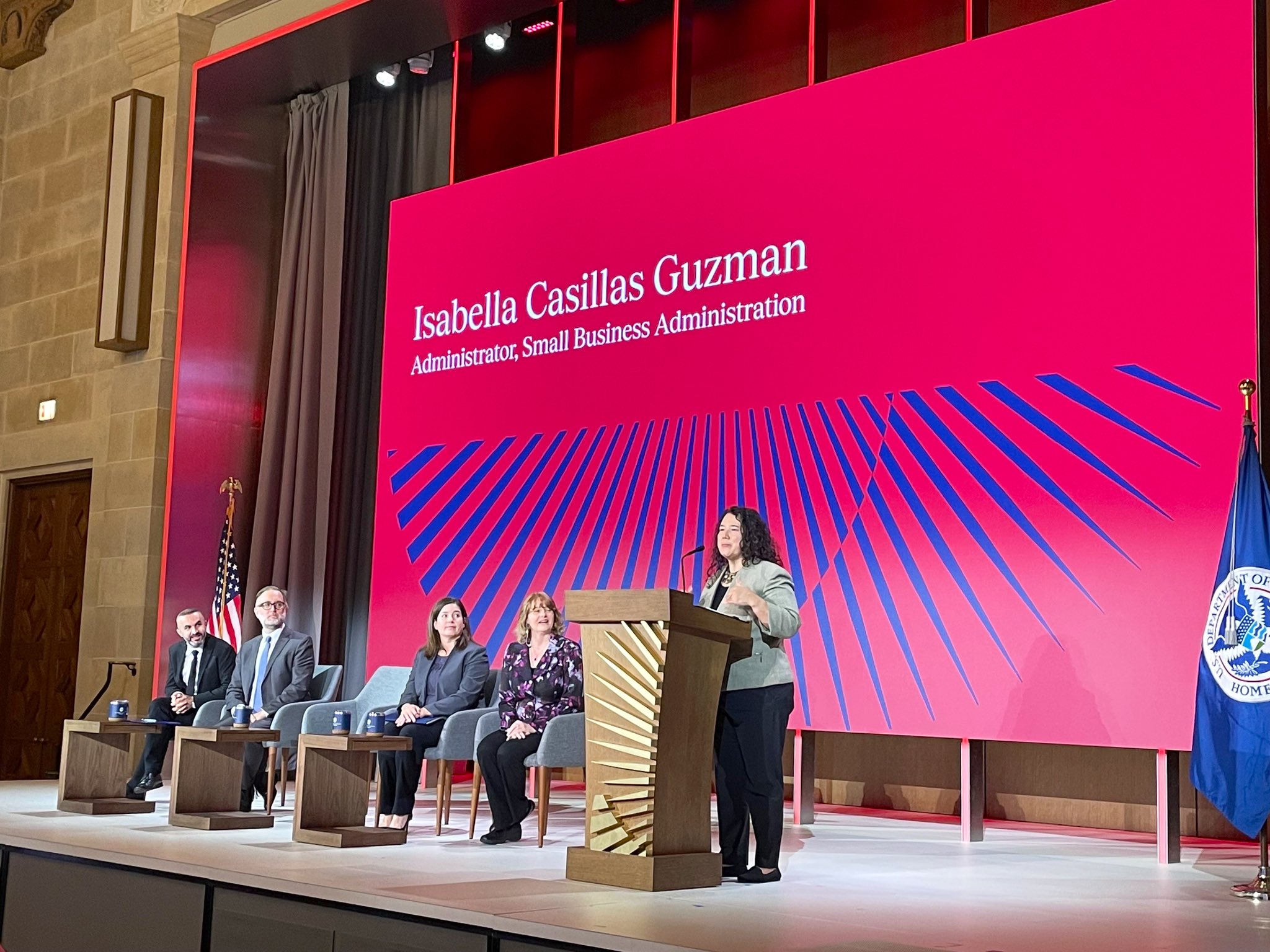
Philadelphia City Solicitor Marcel Pratt talks the impact of “affirmative litigation” in the city
First practiced by his predecessor, Pratt has carried the torch to take on threats to Philly residents like federal immigration policy and gun violence.
When Marcel Pratt first came to the City Solicitor’s Office, both Philadelphia and the law industry were in a tough spot.
While pursuing his law degree at Temple University after getting an undergraduate in economics from the University of Pennsylvania, Pratt scored himself a summer internship at one of the city’s biggest law firms in Ballard Spahr.
The goal was to start his career there, but the nation was in the middle of its worst recession since the Great Depression and even big firms like Ballard were facing hardship.
“Those were very dark times,” said Pratt.
In addition to firms pulling back offers made to summer associates like him, others shut down for good.
Ballard’s plan was to delay the start dates for its new crop of lawyers by a year, instead paying them a stipend to work in public interests. Some of Pratt’s classmates went to work at the Philadelphia Public Defender’s office, while others taught high school history for a year.
Pratt ended up in Philadelphia’s Law Department.
He admits now it was never in his plan, but one of the best things that could’ve happened in his young law career.
“I did things with the city that you couldn’t really do at a large, corporate law firm starting out,” said Pratt.
Despite the experience, he did return to Ballard after a year to start, working mostly within commercial litigation and antitrust cases, and occasionally disputes over intellectual property.
With his career well underway at Ballard, Pratt didn’t plan to leave the firm, but he never forgot his experience working for the city.
When the then-City Solicitor Sozi Tulante came asking for him to head up Philly’s litigation group within its law department, it was an opportunity he couldn’t turn down.
The litigation group includes the city’s units of appeals, civil rights, labor and employment, tort litigation, code and public nuisance litigation and affirmative and special litigation.
“I couldn’t say no,” said Pratt, who also mentioned the city law department’s turn towards affirmative litigation as being a major factor in his decision to join the office.
“There was a lot of passion and a lot of energy,” he said.
Under Tulante’s leadership, affirmative litigation was the new approach to getting things done in the city law department. The practice uses the city’s legal standing to, as Pratt said, “do the right thing and protect the interests of Philadelphia residents.”
“Historically, the city just gets sued a lot, so we’re always on the defensive,” he said. “I think he [Tulante] wanted to change that.”
Some of the things affirmative litigation has allowed the law department to do for Philadelphia includes recovering money and, in some cases, setting a base on which public policy can be built.
“That’s kind of one of your starting points,” said Pratt. “How is this going to make Philadelphia a better place to live and work?”
When he started at the City Solicitor’s Office back in 2016, one of the first affirmative litigation battles he was a part of captured the country’s attention.
Back then, in the early days of President Donald Trump, his administration attempted to defund cities providing “sanctuary” to immigrants.
For the record, Pratt was quick to point out that Philadelphia was a “welcoming” city rather than the popularized “sanctuary” city.
“That’s how we see ourselves,” he said, “and sanctuary city doesn’t have a real legal definition.”
Regardless, Philadelphia still stood squarely in the ire of the Trump administration.
Beyond the concern of a broad threat “to defund,” Pratt said there was also a federal criminal justice grant received by the city for more than a decade being manipulated to force the city to change its immigration policies.
These policies, found in cities across the country to make immigrant communities feel welcome were under attack.
“From our perspective, day-to-day operations whether it’s police, department of health or whomever, the city doesn’t need to know what your immigration status is. You’re a resident of Philadelphia and that’s good enough to receive services from Philly and be treated like anyone else,” said Pratt.
Under threat, the City Law Department took those arguments to court with them against the federal government — the second city to do so at the time — and won.
Many cities followed suit and had their cases resolved before trial, but Philadelphia’s was not.
RELATED CONTENT
Its trial against the federal government featured testimonies from the city’s then-police and health commissioners. Both, Pratt said, were key to winning the case.
The police commissioner argued against the narrative pushed by the Trump administration that immigrants bring crime.
“That’s simply not true, and the court agreed with him on that point,” said Pratt.
The health commissioner stressed how little legal status mattered to whether or not someone should receive medical care.
“It doesn’t matter what papers you have in your pocket, if you’re sick and need help, we want to treat you, we want to help you out,” said Pratt.
After its initial defeat, the federal government appealed the decision, but lost again.
Pratt took over as City Solicitor in 2018 and has continued Tulante’s practice of affirmative litigation to fight on the city’s behalf.
Under his leadership, Philly has supported further legal action against the federal government regarding the inclusion of the citizenship question on the census questionnaire (it won’t be there), and intervened in a lawsuit from Alabama that tried to prevent counting undocumented immigrants because it would harm the states with lower immigrant populations (like Alabama).
“We think that’s inconsistent with the Constitution. The Constitution requires that you count everyone, and that you don’t single people out based on their immigration status,” said Pratt.
But while the city’s been successful defending itself at the federal level, the state has proven trickier to handle.
For one, the city has tried and failed multiple times to enact its own gun regulations, only to be shot down by the state.
“It’s really important for a city like Philadelphia to be able to enact common sense gun laws,” said Pratt. “We’re in the middle of a gun violence epidemic and having that ability is critically important.”
Since the beginning of 2017, more than one thousand people have been murdered in Philadelphia, most by way of shooting. 2020 has started more violent than any of the previous three years, with 56 murders after not even two months.
The crisis has caused City Council to re-up its efforts to pass legislation in spite of the state and placed a re-emphasis on its Special Committee on Gun Violence Prevention to reconsider more prevention strategies and hear more stories of trauma.
It even voted in one of its first meetings to sue the consider suing the state over Philly’s ability to enact its own gun laws — something Pratt’s office will again, be on the front lines for.
During his visit to AL DÍA on Feb. 6, Pratt couldn’t offer too much of his hand on how the city law department would approach the potential lawsuit other than that they “have theories” on what would look like.
The discussion is ongoing, but Pratt did emphasize the dire situation and the need to find answers for Philadelphians — something his office could eventually play a major role in achieving.
“We have to try everything possible because we’re desperate at this point for solutions,” he said.











LEAVE A COMMENT:
Join the discussion! Leave a comment.